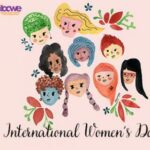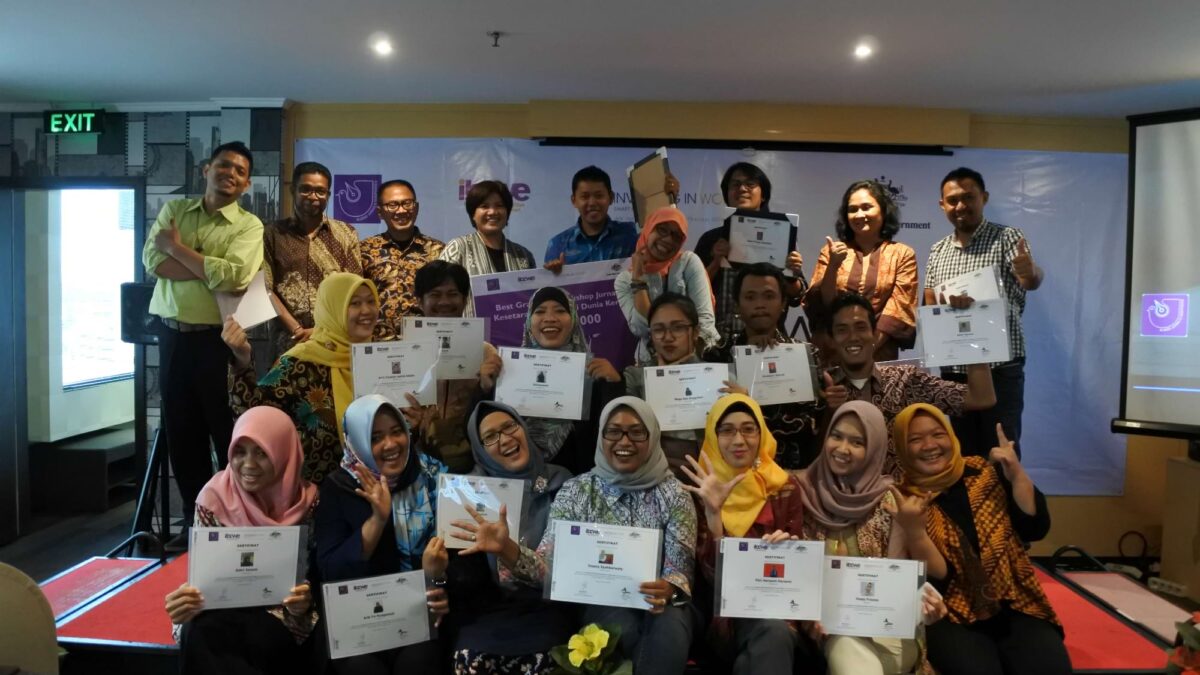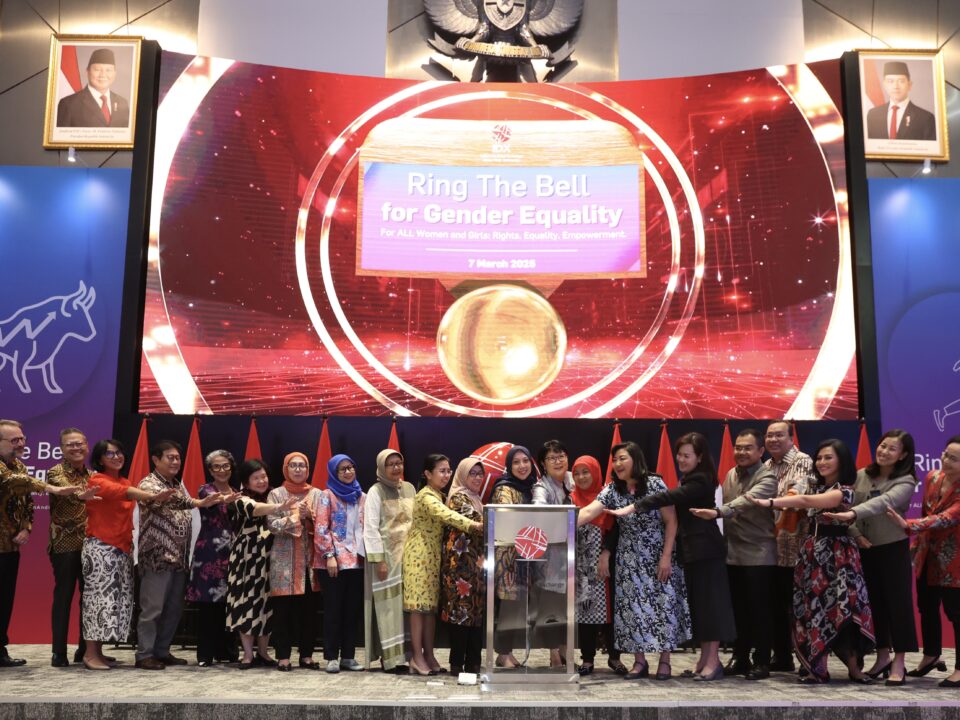
WEP Working Group: Women’s Empowerment in the Workplace and Community
December 24, 2023
International Women’s Day, Gate for Equal
December 24, 2023Wednesday, January 9, 2019, held an event Graduation of “Gender Equality in the Workplace”, where this activity was the culmination of the closing of a series of journalist learning class activities conducted by IBCWE in collaboration with the Alliance of Independent Journalists (AJI). The 20 learning class participants came from print, online and television media from Sumatra to Papua. They have completed a class on gender in the world of work held in June 2018, making coverage of women in the world of work according to their respective regions, and gathering back to AJI.
The Graduation program was opened by Catharina Widjaja, Director of PT Gajah Tunggal Tbk, as well as the board of IBCWE. In her opening remarks, Catharina Widjaja conveyed, “AJI’s colleagues have an important role in disseminating information and educating the general public on the issue of gender equality, so that concern will arise and women’s economic empowerment movements can be truly realized”. Fellow journalists are expected to be able to bring this issue into an important headline to discuss, not just a distraction or supply when the media drought coverage.
In the discussion at the Graduation event, Nani Afrida, from Anadolo Agency, Turkey News Agency, shared her experience from a journalist’s perspective. What are the obstacles for women journalists in the field who are often discriminated against because they are considered incompetent, harassment received from sources, and violence that leads to death. In addition, women are still underestimated as resource persons. The woman’s argument is invalid for headlines, women is more suitable to be put in a smooth rubric like beauty and fashion.
More generally, the position of women in the workplace is not much different according to Maya Juwita, Executive Director of IBCWE. In fact, often when companies are willing to make efforts to improve gender equality, apparently this is not supported by the government. For example, the Tangerang regional regulation that prohibits women from leaving more than 6pm, which makes it difficult for PT Gajah Tunggal Tbk to arrange shift work for female employees. The stigma of women having to be at home also makes it difficult for women to progress and be economically empowered. This seems to have an impact on reducing Indonesia’s gender equality position to rank 85 from the World Economic Forum data.
This is certainly interrelated, because the media as an information channel for the community has a great homework. It is good in the body of the media itself, to create rules that are free of gender bias, equal and inclusive, so as to foster gender sensitive understanding to all levels in the media body. With that every writing, news and coverage produced will be more weighty and unbiased. Like the case of online prostitution which is being discussed, according to the Chairperson of AJI, Abdul Manan, many media violate the code of ethics and seem to ignore it, because news like this is a click bait that is in demand because of women’s objectivity. Unlike the case of sexual harassment by BPJS officials, the case was not crowded in the media because it was considered less attractive, women who demanded and not as objects did not get the media exposure they should. Abdul Manan hopes that through forums like this journalists are more sensitive to gender issues in the future and are well aware of the ethics that must be held.
At the end of the event, the winners of the best news coverage from each media category were announced. From the print media the best winner was Muhammad Kasim from Suara NTB with the title Nurbaya Sari, Longing for Peace. Online category of the best winner Nurika Manan from KBR.id with the title Story of Pregnant Workers in the Garment Industry. The last of the television categories was Agnes Sinambela from DAAI TV with the title Ruang Kasih for ASI Fighters. Congratulations to all winners and thanks to journalists who have participated in gender equality learning classes. Hopefully the knowledge gained can be disseminated so that more people understand what gender equality is and the benefits of women’s economic empowerment.





